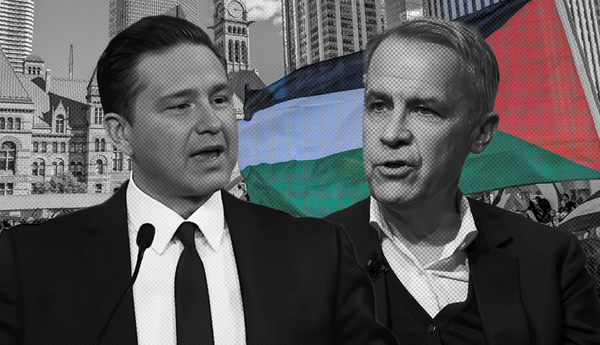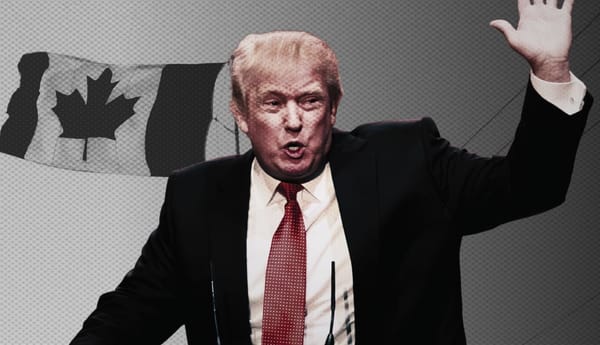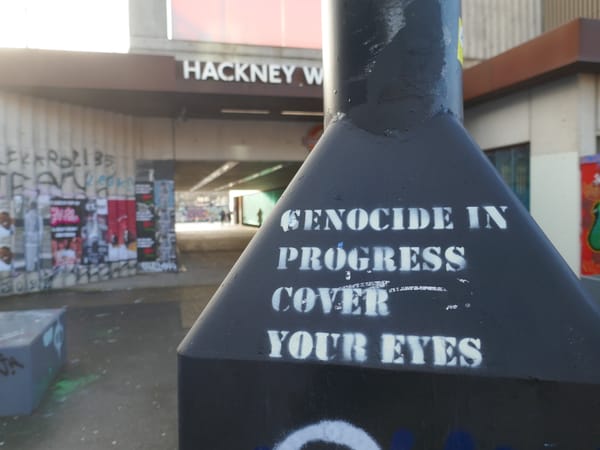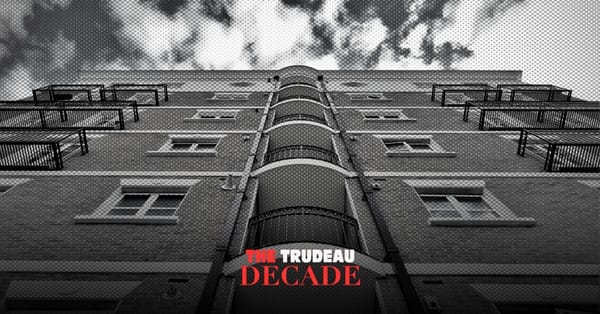On Friday, a Ukrainian Nazi veteran was introduced before Canada’s parliament and received two standing ovations from seemingly every MP in attendance.
The Nazi in question, Yaroslav Hunka, 98, was invited before parliament as part of a visit by Ukrainian President Volodymyr Zelensky. After the session ended, people online began pointing out that Hunka served as a member of the SS 14th Waffen Grenadier Division, a period he described in a 2011 blog post as the happiest years of his life. Outrage spread, and the story quickly became international news.
The Liberal government scrambled to put together a narrative as to how and why this happened, while admitting that it was, according to Prime Minister Justin Trudeau, “deeply embarrassing to the Parliament of Canada and by extension to all Canadians.” The party eventually settled on blaming Parliament’s speaker, Liberal MP Anthony Rota, claiming it was his mistake alone and not a broader failure. Rota also apologized and supported this framing. Multiple high profile Liberals have since called for him to resign.
Meanwhile, many MPs, from several political parties, have tried to justify their applause for Hunka by pointing out that they assumed he’d been vetted by the government and didn’t know he was a Nazi.
This argument is suspect because while Hunka was not introduced as a Nazi, the description given of him should have made it apparent — Rota said that Hunka was “a Ukrainian Canadian war veteran from the Second World War who fought for Ukrainian independence against the Russians.” Anyone with even a basic understanding of the Second World War, which should include MPs, would intuitively understand that this meant Hunka was working with the Soviet Union’s mortal enemy: the Nazi regime.
But, for argument’s sake, let’s take these MPs’ claims at face value. Let’s assume none of them have a primitive understanding of the war, or that it’s not a problem that they’re willing to clap for anything and anyone framed as being against the Soviets or Russians. There’s at least one MP, who has (to the best of my knowledge) yet to say anything on the issue, for whom this excuse can’t apply: Deputy Prime Minister Chrystia Freeland.
Freeland is the most powerful Ukrainian nationalist in a country full of them. She speaks Ukrainian, owns a residential property in Kyiv, has lived, studied and worked in Ukraine, has edited at least one scholarly article pertaining to Ukrainian Nazis during the Second World War, and is often positioned, by the media, government, and herself, as a knowledgeable voice on Ukraine, at least relative to other politicians and public figures in Canada.
If we are to believe the frequent and lavish praise of Freeland’s supposed deep understanding of Ukrainian history in the 20th century, then she should have absolutely been triggered by Rota’s description of Hunka (assuming she didn’t know of him before the invitation was sent, or even at any point before he made his appearance before parliament, which also seems unlikely). And yet, despite that, or perhaps because of it, Freeland joined the rest of the MPs in offering a standing ovation for Hunka, beaming as she did so.
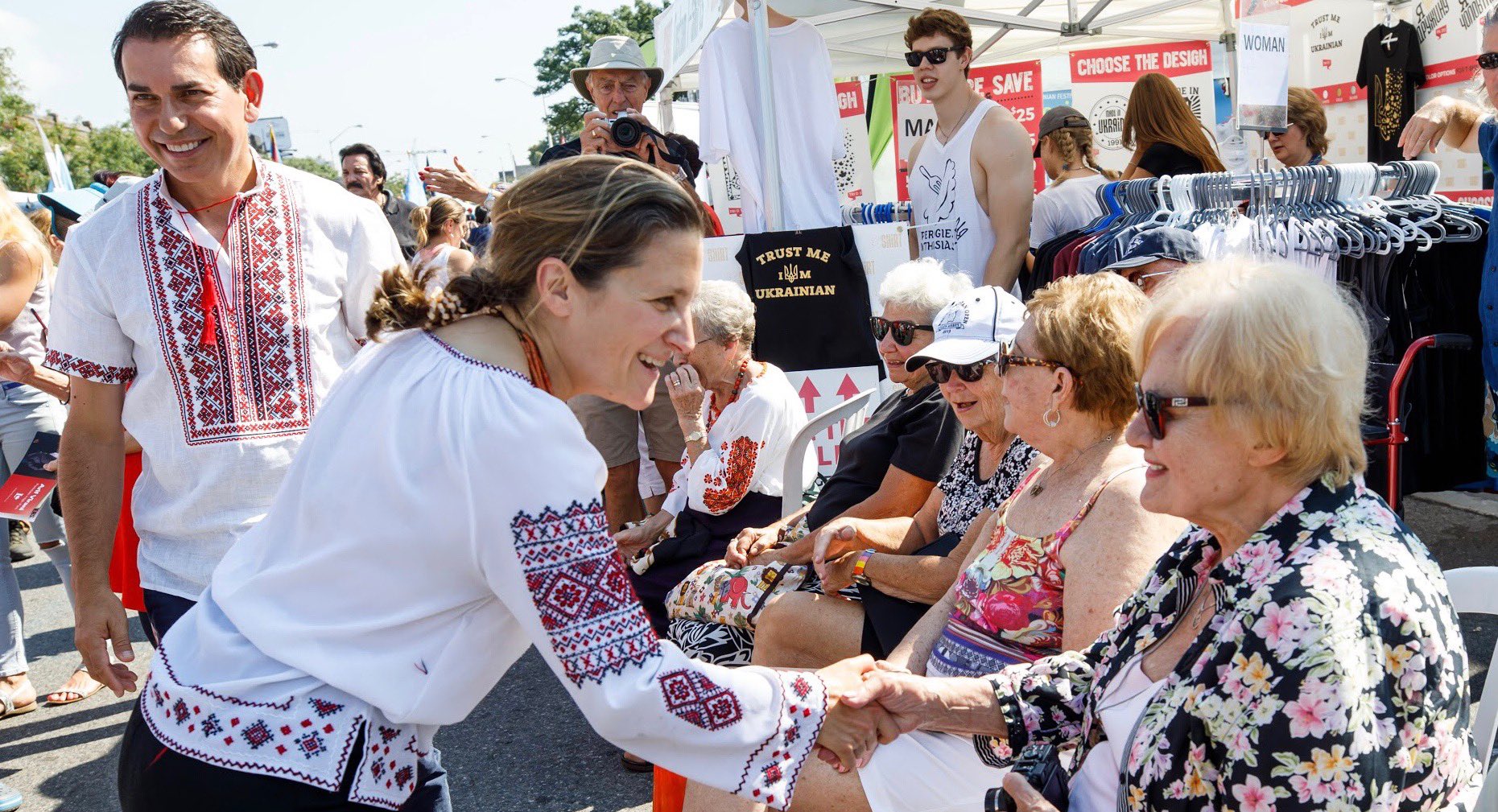
I don’t accept the excuse MPs have offered as to why they clapped, but no such excuse can even be attempted by Freeland unless she admits she is a fraud. She knew, or ought to have known, what sort of person was being paraded, and clapped anyway.
This, of course, isn’t the first time Freeland has either actively supported or at least associated herself with historical Nazis and Nazi collaborators. There have been many such cases, which indicate she either is lying about understanding Ukrainian history or is simply comfortable with supporting the country’s fascists for one reason or another.
For example, in February 2022 Freeland appeared at a pro-Ukraine protest in downtown Toronto and held up a red and black banner that is associated with the Ukrainian Insurgent Army (UPA). As I wrote at the time, the UPA “was a fascist paramilitary group that operated during the Second World War, and collaborated with the Nazis at times throughout this period. In 1943, according to researcher Terry Martin, the UPA ‘adopted a policy of massacring and expelling the Polish population of Volhynia and Eastern Galicia.’ Researchers estimate that members of the group killed around 100,000 Polish civilians over the next year.” After the protest, Freeland chose to tweet a photo of herself holding the banner, attaching a caption including the phrase “Slava Ukraini,” which itself became popular due to Ukrainian fascist groups. She ended up deleting the photo after much critique, but did not directly address the matter.
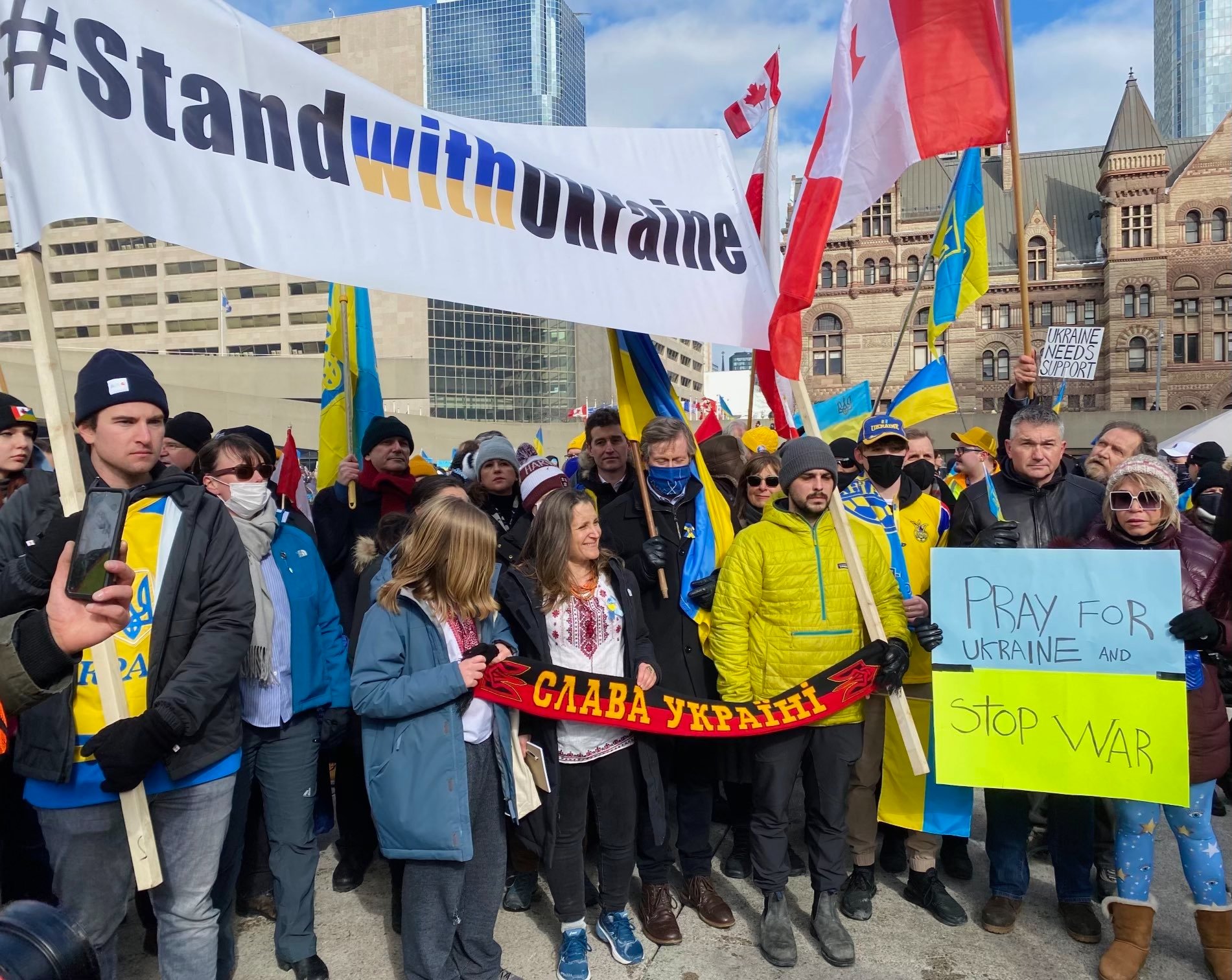
So, which is it? Does Freeland, contrary to media reports about her, and her academic and professional career, actually lack a basic understanding of Ukrainian history, which should disqualify her from her prominent role in formulating Canada’s approach to the country and Russia? Or does she have an understanding of the history and choose to sympathize with at least some of the range of Nazi-collaborators, Nazis and Ukrainian fascists that make up a significant part of it?
As the deputy prime minister, minister of finance and former minister of foreign affairs, among many other roles, the media and other politicians have a duty to hold Freeland to a higher standard than even other MPs and political figures. And on this matter, given her purported knowledge on Ukraine and lack of an excuse for applauding a Nazi, the pressure should be even more intense.
Freeland should be asked direct, repeated questions about these matters by the sort of reporters she’ll actually respond to. They’ve mostly failed to do so up until this point, despite years of Freeland applauding or excusing Ukraine’s far-right. Enough.




